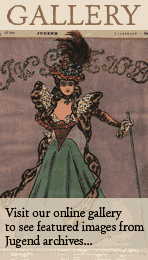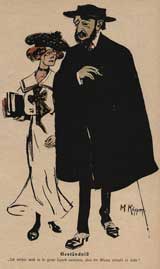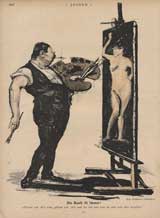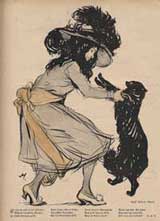Georg Hirth (1841-1916)
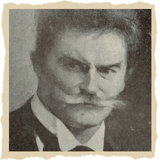 Georg Hirth started the magazine, and for twenty years until his death was firmly in control of its editorial content. He was a remarkable man. His home, which today is the French Embassy in Munich, was filled with writers, poets, and artists who were interested in the arts and crafts movement in Germany. They were captivated by the idea of breaking into a new philosophy, a new way of seeing art, and Jugend gave them a place to explore these ideas.
Georg Hirth started the magazine, and for twenty years until his death was firmly in control of its editorial content. He was a remarkable man. His home, which today is the French Embassy in Munich, was filled with writers, poets, and artists who were interested in the arts and crafts movement in Germany. They were captivated by the idea of breaking into a new philosophy, a new way of seeing art, and Jugend gave them a place to explore these ideas.
More than that, though, Hirth was one of the most influential thinkers in Munich, and his magazine and his home were a gathering place for Munich's philosophical and artistic thought of the time. A frequent and welcome guest was Ernst Haeckel, and Hirth was so devoted to him that he cofounded the Monist Society in Munich. This was perhaps more influential to Jugend than it would seem; Haeckel's teachings included an element of nature worship, and looking at the pages of Jugend, one can easily see the influence of naturism and the ideals of early Germanic religions, which were very spiritual and naturalistic. The February 1904 Jugend was entirely devoted to Haeckel, in honour of his 70th birthday.
This was important for another surprising reason: Hirth was as much a scientist as he was an artist. His books, including the 1891 treatise Aufgaben der Kunstphysiologie (or Responsibilities of Art Physiology) were influential in the development of creative arts during the turn of the century art world in Germany. His theories included the idea that rote copying of art, a frequent tool in teaching students skill as well as art appreciation, actually deadened the student to creativity and stifled artistic progression in Germany. These ideas are a large part of what led him to start Jugend to begin with.
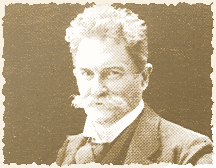 Hirth was a German patriot as well, and strongly supported Germany in World War I. You can see this reflected in the pages of Jugend during the war years. (Hirth, a true Renaissance man, also supported the war in a material fashion; he invented a liquid vitamin supplement used by German soldiers during the war.) With Hirth's magazine, one can also see the collective changes in Germany as it transformed from the regional states that were soldered together by Bismark in 1871 into the world power it became and remains today.
Hirth was a German patriot as well, and strongly supported Germany in World War I. You can see this reflected in the pages of Jugend during the war years. (Hirth, a true Renaissance man, also supported the war in a material fashion; he invented a liquid vitamin supplement used by German soldiers during the war.) With Hirth's magazine, one can also see the collective changes in Germany as it transformed from the regional states that were soldered together by Bismark in 1871 into the world power it became and remains today.
Today, Hirth is remembered in the name of a Munich plaza, Georg-Hirth-Platz, and through the legacy of Jugend. Tragically, his place in the world's memory, like that of many other Germans of his time, has been mostly obscured by the long dark shadow of Nazism that followed.



